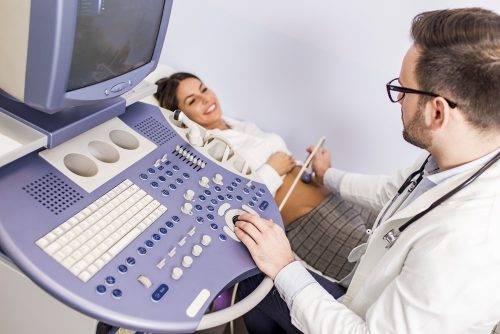What is a Transrectal Prostate Biopsy?
Transrectal Prostate Ultrasound is today an irreplaceable method for detecting the initial stages of prostatic carcinoma that can not be detected by any other examinations. Our team can help you find excellent professional experts to perform the procedure.
The prostate can be examined by ultrasound over the belly with a full bladder, but the best is the prostate presentation when a thin probe of the ultrasound apparatus is placed a few centimeters in the colon and directly with the prostate. Such a review is called transrectal ultrasound of the prostate. The prostate display is then excellent, accurately showing all the changes in the prostate, urinary tract, urinary bladder and vesicle seeds.
Transrectal ultrasound (TRUS) of the prostate is part of the triad of early prostate carcinoma diagnosis, which still makes:
- Digitorectal prostate review
- Determining PSA-prostate specific antigen
It is important to emphasize that elevation of the PSA does not always mean the existence of prostate cancer because PSA is increased in case of prostate inflammation or if the prostate is very high due to benign prostate enlargement. On the other hand, there were patients with normal PSA but with prostate cancer. That is why it is necessary to do other examinations and then make conclusions.
If one of the previous review methods is suspicious, prostate biopsy is done. Prostate biopsy is “almost painless”, which means that besides the discomfort, there is virtually no pain in the examination. Sampling is done with a “pistol” – a device whose needle enters the tissue of the prostate in a tenth of a second and takes a sample. Prostate cancer is one of the most common tumors in males and its incidence rises with age.
Our Advise
We advise our patients on the innocuousness and painlessness of performing preventive transrectal ultrasound of the prostate, in order to gloss over and prevent further development of the disease in time.
This examination does not have ionizing radiation, nor can it cause lasting harmful effects.
It is possible to experience some side effects of the procedure:
- More frequent urination, baking in urination.
- Uneasiness in the scrotum-mice.
- Blood or brownish semen of the sperm, which may take 30-90 days. All of these complications are transitory and negligible.





